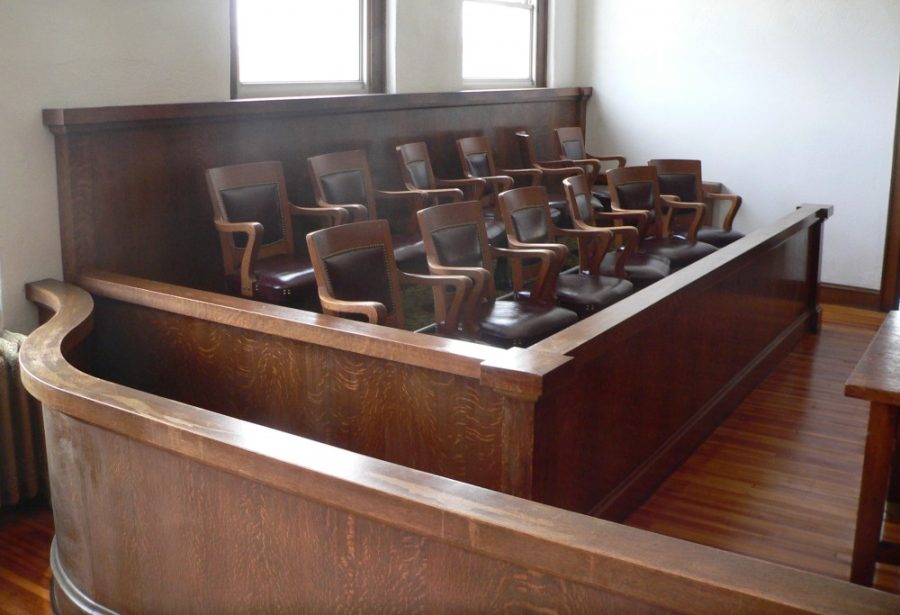Most people are likely aware that cases in the decisions made by a jury must be unanimous to convict or to acquit. If the jury does not reach a unanimous decision it is called a hung jury, and the result is a mistrial.
This is the case in most instances, but today, Oregon does not follow this rule.
In Oregon state trials, only a 10-2 majority is needed to convict or acquit. In 2016, Louisiana had a similar system, which only required a 9-3-majority vote. Though other states and federal cases required a unanimous decision, these two states were able to maintain these state court standards. The Supreme Court even defended these practices in two cases: Apodaca v. Oregon and Johnson v. Louisiana.
RELATED: OPINION: Gentrification in Tucson
Both cases were argued before the Supreme Court in both 1971 and 1972. The rulings were the same in both cases: Though a unanimous decision is required at a federal level, a majority decision does not violate the Sixth Amendment, and it is up to the states to decide whether or not a unanimous decision is required in the state court system. This comes as no surprise given the Supreme Court also ruled a 6-person jury did not violate the Sixth Amendment in Williams v. Florida.
The actual Sixth Amendment text is as follows: “In all criminal prosecutions, the accused shall enjoy the right to a speedy and public trial, by an impartial jury of the State and district wherein the crime shall have been committed, which district shall have been previously ascertained by law, and to be informed of the nature and cause of the accusation; to be confronted with the witnesses against him; to have compulsory process for obtaining witnesses in his favor, and to have the Assistance of Counsel for his defence.” Nowhere in the text does it define how many members need to be on a jury, nor does it mention the vote must be unanimous. The reason most juries in the United States are 12 people and require a unanimous vote dates back to the predecessor of our court system: English common law. In England, all courts must be of 12 jurors and all decisions must be unanimous. When the United States parted from England, they modeled the court system after the English system as most of the lawyers and judges were educated in England anyways.
RELATED: OPINION: Should gun manufactures be liable for criminal conduct
The Sixth Amendment essentially guarantees a few things: a speedy trial, a fair and impartial jury of peers, a trial in the district where the crime was committed, the right to know one’s accusers and their witnesses, the right to obtain one’s own witnesses and the right to defend oneself or the right to an attorney. All states follow these guidelines, they only differ in certain aspects like jury size.
States’ rights and expansion out west led to the variation in state court practices. As a result, Evangelisto Ramos, who is a man convicted of second-degree murder by a majority decision in Louisiana, has decided to appeal his conviction to the Supreme Court on the basis the Sixth Amendment requires juries in state trials to vote unanimously through the incorporation doctrine.
As we have noted, past decisions and the text of the Sixth Amendment predict Ramos will lose the case. Nowhere does it require a jury to be unanimous, and Apodaca v. Oregon and Johnson v. Louisiana confirmed this. The court, however, has agreed to review this, and perhaps they will decide that a “fair and impartial jury” does constitute a unanimous decision. Personally, I believe a unanimous decision should be required and applied to all states. The prosecution’s burden is to prove the accused guilty “beyond a reasonable doubt.” In majority decisions, the prosecution failed to do this because there are people on the jury who have a reasonable doubt in majority decisions.
Another hope for this case is that it will inspire Louisiana representatives and members of the state congress to write a bill which will retroactively acquit persons who were convicted with majority decisions before the bill that required unanimous decisions was passed. Perhaps a few criminal rights activists in the State of Louisiana will petition to get a law like this on the ballot. Only time will tell what this case brings, but if it is received well or at least garners attention, it will bring much needed criminal reform.
Follow the Daily Wildcat on Twitter









